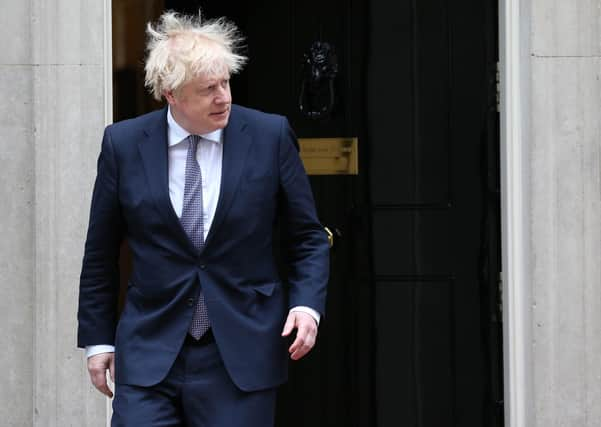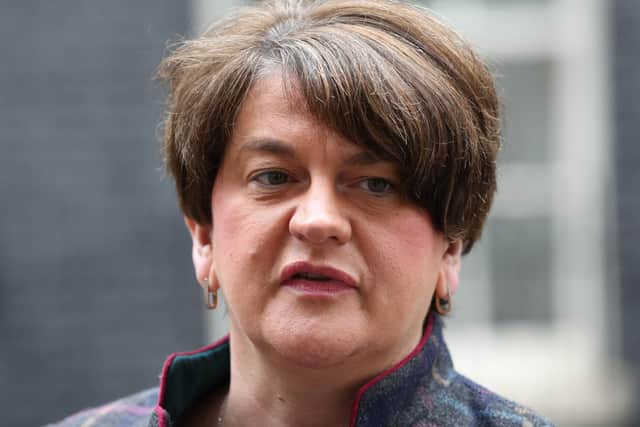Scottish independence vote to define Boris Johnson – Patrick Mercer


She’s lived most of her life in England, so it came as a shock – especially to me – when she inherited the family croft on Skye and we took to spending a good slice of our time up there.
The inheritance happened, of course, just as the first independence referendum was heating up and we had the opportunity to watch it and subsequent wrangling at first hand.
Advertisement
Hide AdAdvertisement
Hide AdNow, it’s often suggested that the UK has never been through this sort of crisis before. Well, it has.


Within living memory (just), a large slice of Ireland broke bloodily away and there are all sorts of lessons to be learnt from that time, I believe.
Also, the whole issue is normally framed by whether independence will be good or bad simply for Scotland: seldom are the fortunes of the rest of the realm considered.
As a profound Brexiteer, with much service in Northern Ireland behind me, I fully understand why a country might want its own sovereignty – although I’ve seen the pitfalls.
Advertisement
Hide AdAdvertisement
Hide AdI have to confess, though, that I utterly fail to understand why the SNP is wedded to the idea of rejoining the EU should it break the bonds with the rest of the UK: haven’t they had enough of what some Scots regard as subservience?


But that begs the question of what Lord Hague, the former Tory leader, has identified as the four main tests for an independent Scotland.
First, how would it fare without the £1,600 extra per Scot that Westminster spends at the moment? The SNP would either have to raise taxes or increase borrowing and in what currency?
If it stuck with the pound, Scotland would be subject to the diktats of the Bank of England, but even supposing it was accepted back into the EU, the euro doesn’t smack of proud self- determination, does it?
Advertisement
Hide AdAdvertisement
Hide AdLeading on from that, what kind of a border would exist? Would we need passports, would there be currency exchange, how would Scots living in England manage and would we be plunged into the same discord that the EU has created in Northern Ireland?
The fourth test is defence. The biggest punch that Britain possesses, our nuclear submarines, are based in Faslane.
Would the Scots want them to remain with all the wealth and realpolitik kudos they create, perhaps on some sort of Cyprus-like sovereign base, or would they want to see the back of such symbols of aggression?
If we focus moves south, though, another picture emerges.
Wales is now firmly in the grip of a Labour government which is conjuring with all sorts of extreme ideas.
Advertisement
Hide AdAdvertisement
Hide AdNotably, a pilot for universal basic income is being designed by Welsh First Minister Mark Drakeford’s team, which means that every adult in a specific area would receive a standard, unconditional payment at regular intervals – a sort of furlough meets Universal Credit.
The Tories are less than convinced, though, saying Wales is not a petri dish for failed left-wing policies.
But, with this sort of radical thinking, one wonders if the Cenydd would even entertain the idea of the nuclear fleet being based in Milford Haven – an ideal spot which the Royal Navy has long eyed up.
Might pacifism overcome prosperity? And in line with this, how long would it be before the Welsh nationalist voice rose up in tune with Scotland’s?
Advertisement
Hide AdAdvertisement
Hide AdThe most pressing question, though, is what will happen in Ireland.
Boris Johnson said “no” to any sort of border in the Irish Sea after Brexit, but that soon changed.
And that U-turn has now led to the sort of trouble on the streets of Ulster’s cities which we haven’t seen for many years, ironically, mainly at the hands of the Loyalist community.
Few seemed to worry about them during the Brexit process. Any supposed threat to the Good Friday Agreement – which US President Joe Biden’s people spent so much time braying about – was laid at the feet of Republicans.
Advertisement
Hide AdAdvertisement
Hide AdAt the moment, the matter of the Northern Ireland Protocol seems to be quiescent, but just wait for July 12 and the marches to celebrate the Battle of the Boyne.
Unless the problem’s fixed by next month, I believe we could be in for a very tricky summer.
And if the “no” to an Irish border can be ditched, what price Mr Johnson’s similar refusal to contemplate another Scottish referendum?
His blank denial of Nicola Sturgeon’s ambition is simply not good enough.
Advertisement
Hide AdAdvertisement
Hide AdThe Prime Minister must not try to ignore Scottish independence as an issue purely for the Scots because it just isn’t that shallow.
If Scotland were to leave the Union, why shouldn’t the other nations follow its example? And in the wake of Welsh and Northern Irish agitation, might not Cornwall, Northumberland and even Yorkshire seek independence?
No, I’ll say it again, the next big problem for our government will be another referendum in Scotland because the stability and prosperity of our whole country rests upon it.
Patrick Mercer is a former Conservative MP.
Support The Yorkshire Post and become a subscriber today. Your subscription will help us to continue to bring quality news to the people of Yorkshire. In return, you’ll see fewer ads on site, get free access to our app and receive exclusive members-only offers. Click here to subscribe.
Comment Guidelines
National World encourages reader discussion on our stories. User feedback, insights and back-and-forth exchanges add a rich layer of context to reporting. Please review our Community Guidelines before commenting.